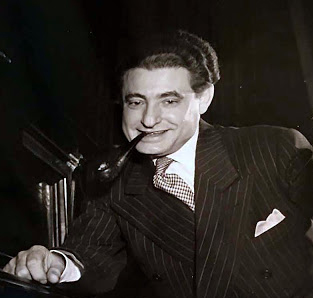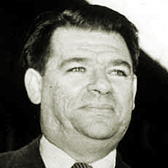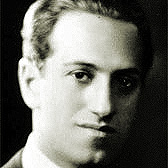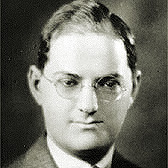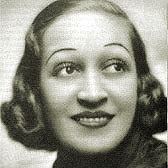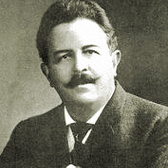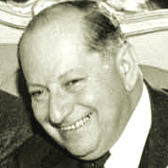
Hungarian emigree wrote hundreds of songs for operettas and musicals in 1920s and 30s
Sigmund Romberg
InducteeWrote "Lover, Come Back To Me" with Oscar Hammerstein II
Sigmund Romberg was born on July 29,1887 in Nagykanizsa, Hungary. He showed musical ability at an early age, but his parents wanted him to go into something more sensible. They sent him to Vienna to study engineering, but he immersed himself in the world of Viennese music.
In 1909, he moved to the United States and settled in New York. His first job was in a pencil factory for seven dollars a week. He soon found work as a pianist in cafes, and formed his own European salon and light music orchestra in 1912. Some of his early compositions attracted the attention of Broadway producers J. J. and Lee Shubert, who employed him as their house composer. His first work for them was The Whirl of the World, written with lyricist Harold Atteridge, in 1914. Other shows Romberg wrote with Atteridge were The Midnight Girl (1914), The Passing Show (1914), Dancing Around (1914), and Maid in America (1915).
By 1917, Romberg had composed 275 numbers for seventeen musicals and revues. His first great success came in 1917 with Maytime, book and lyrics by Rida Johnson Young. The operetta was an adaptation of the Viennese operetta Wie einst im Mai. Another adaptation of a Viennese operetta, Das Dreimaederlhaus, book and lyrics by Dorothy Donnelly, was the major success Blossom Time in 1921. It was a fictionalized version of Franz Schubert's youth for which Romberg re-arranged several pieces of Schubert's music. He followed that with one of his greatest successes, The Student Prince, in 1924. With book and lyrics by Donnelly, it was an adaptation of a German play, Old Heidelberg. It included the traditional "Gaudeamus Igitur," " The Drinking Song" and "Serenade."
In 1926, Romberg teamed up with Oscar Hammerstein II and Otto Harbach for The Desert Song, and with Hammerstein for New Moon in 1928, which featured the standard "Lover Come Back to Me." Rosalie, co-written with George Gershwin, and with lyrics by Ira Gershwin and P.G. Wodehouse, was another hit show in 1928. Romberg continued to compose music for operettas after 1930, however none met with favor, for the vogue for operettas or Broadway had been eclipsed by musical comedy.
Throughout the 1930s, he wrote the scores for several movies, including two with Hammerstein, Viennese Nights (1930) and The Night is Young (1934), which featured the song "When I Grow Too Old to Dream." In the 1940s he toured America with his own orchestra, and regularly appeared on radio. His final Broadway show, written with Victor Herbert and Dorothy Fields, was Up in Central Park in 1945.
Romberg died in New York on November 9, 1951. At the time of his death, he was working with lyricist Leo Robin on a musical The Girl in Pink Tights, which was produced posthumously on Broadway in 1954. Also in 1954, Jose Ferrer portrayed Romberg in the movie Deep in My Heart.
Scroll to Discover Sigmund Romberg Connections


